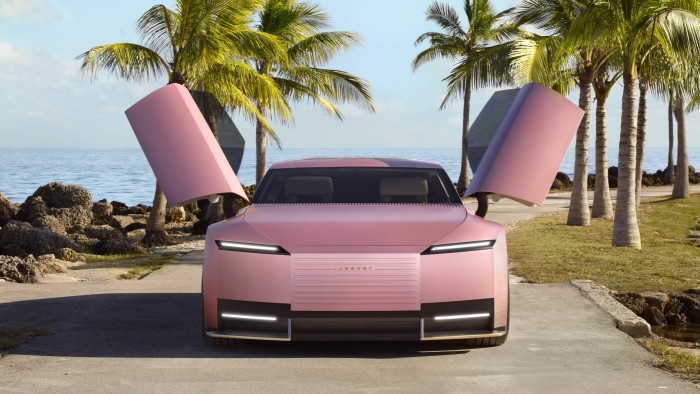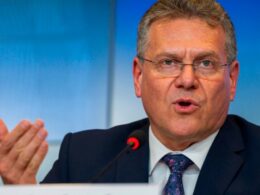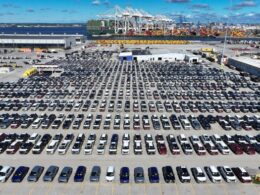Unlock the Editor’s Digest for free
Roula Khalaf, Editor of the FT, selects her favourite stories in this weekly newsletter.
Jaguar Land Rover has clocked its strongest full-year profit in a decade as the UK luxury-car maker contends with the impact of US tariffs and the implementation of a controversial overhaul of its most renowned brand.
Pre-tax profit for the year to March 31 increased 15 per cent to £2.5bn, the company said on Tuesday, on flat revenues of £29bn. Profit before tax and exceptional items in the final quarter was £875mn, up from £661mn year on year. It also achieved its target to become net cash positive, with £278mn.
The strong set of results come despite a widely derided brand redesign for Jaguar that was unveiled in November to address flagging sales. The company dropped the brand’s big cat logo as part of its rebranding and its marketing campaign featured an advert with no cars.
Chief executive Adrian Mardell said: “JLR has ended the year with strong annual and quarterly earnings, including delivering our tenth consecutive profitable quarter and our net debt zero target.”
However, the company followed some other carmakers including Stellantis and Mercedes-Benz in holding back on issuing forecasts for the coming year. JLR said it was assessing the impact of “global challenges” and would provide an update at an investor day on June 16.
The results follow the UK’s trade deal with the US last week. The agreement secured concessions for British carmakers, including a reduction in the US’s import tariff to 10 per cent from the initial 27.5 per cent imposed by President Donald Trump last month.
The Coventry-based company said it would “continue to engage with the UK government on the detail of the trade deal”. In an earnings call, Mardell said he welcomed the UK government’s pledge to back the auto sector “to the hilt” in the face of US tariffs and the subsequent agreement that brings “greater certainty” for the sector. However, he added the company was still “waiting for confirmation of the effective date” that the deal would be implemented.
The trade deal — announced as Prime Minister Sir Keir Starmer visited a JLR factory — brought relief for the UK’s wider auto industry, which sends roughly one in six of all shipped cars to the US, the largest market for the UK’s luxury car brands.
The Tata Motors-owned group, which also produces the Range Rover and Land Rover Defender models, had paused in April shipments of cars to the US for one month as it sought to work out a longer-term response to the tariffs. The company generates almost a quarter of its sales in the US but has no local manufacturing capability in the country. Mardell said on Tuesday the company had “no plans to build cars in the US at this point in time”.
JLR — which is aiming to make its supply chain and operations net zero by 2039 — will next year relaunch Jaguar as an all-electric and ultra high-end brand, selling the majority of its vehicles for more than £100,000. In the interim, Jaguar has stopped selling new cars in the UK and ceased production of most of its petrol models.
Sales of its plug-in hybrid models over the one-year period rose 21.7 per cent, JLR said, as consumers adopt hybrid models as a bridge to fully electric.
The company said it welcomed the government’s changes to the zero emissions vehicle (ZEV) mandate last month, which will increase flexibility for manufacturers on the sale of hybrid models before they are phased out in 2035.
In its results on Tuesday, JLR said more than 32,000 people had “expressed interest” in Jaguar’s forthcoming electric GT model. The company also said there was a waiting list of 62,000 for its electric Range Rover.
The company expects investment spend to remain at £18bn over a five-year period, funded by operational cash flows.
Source link









